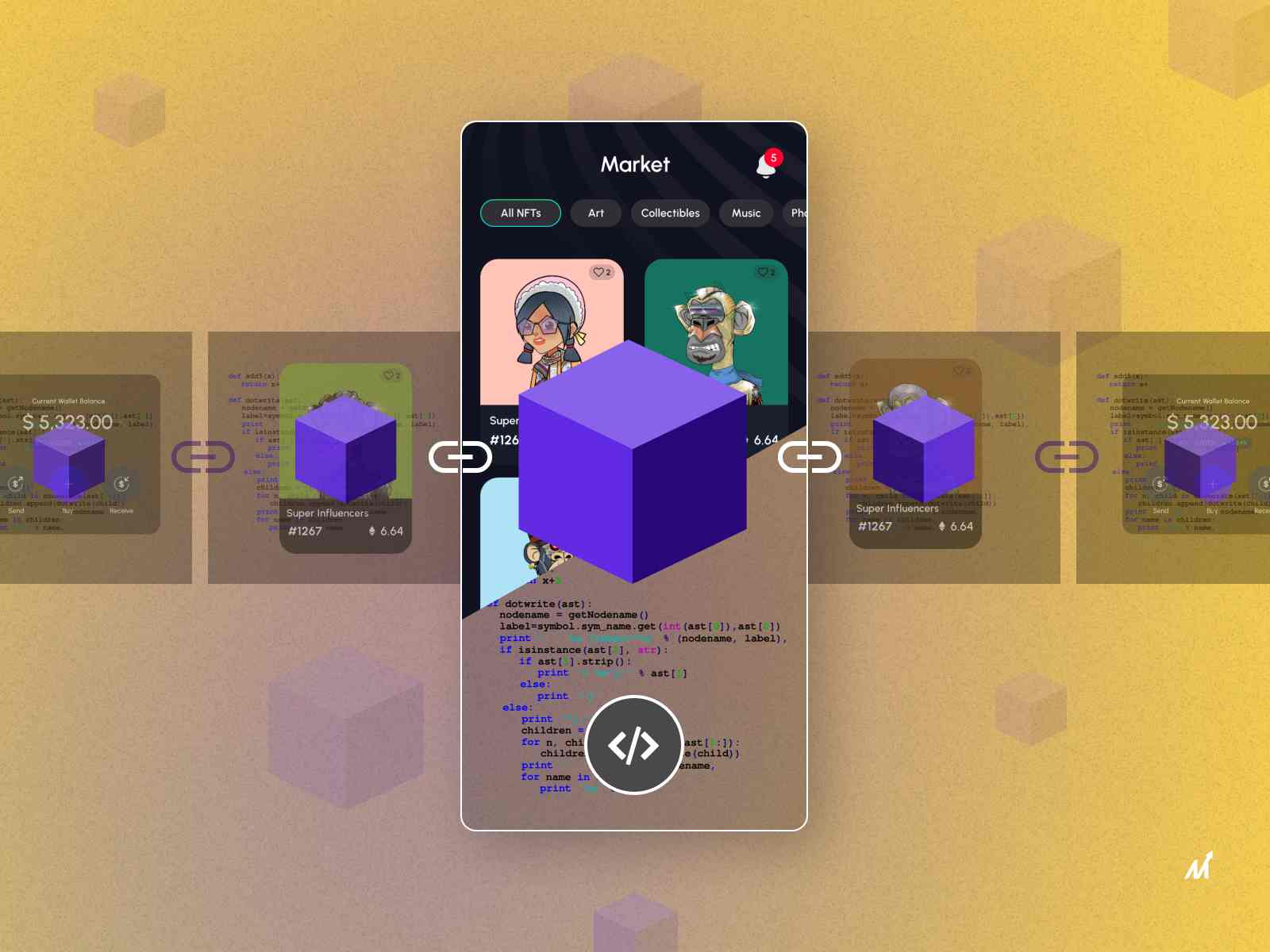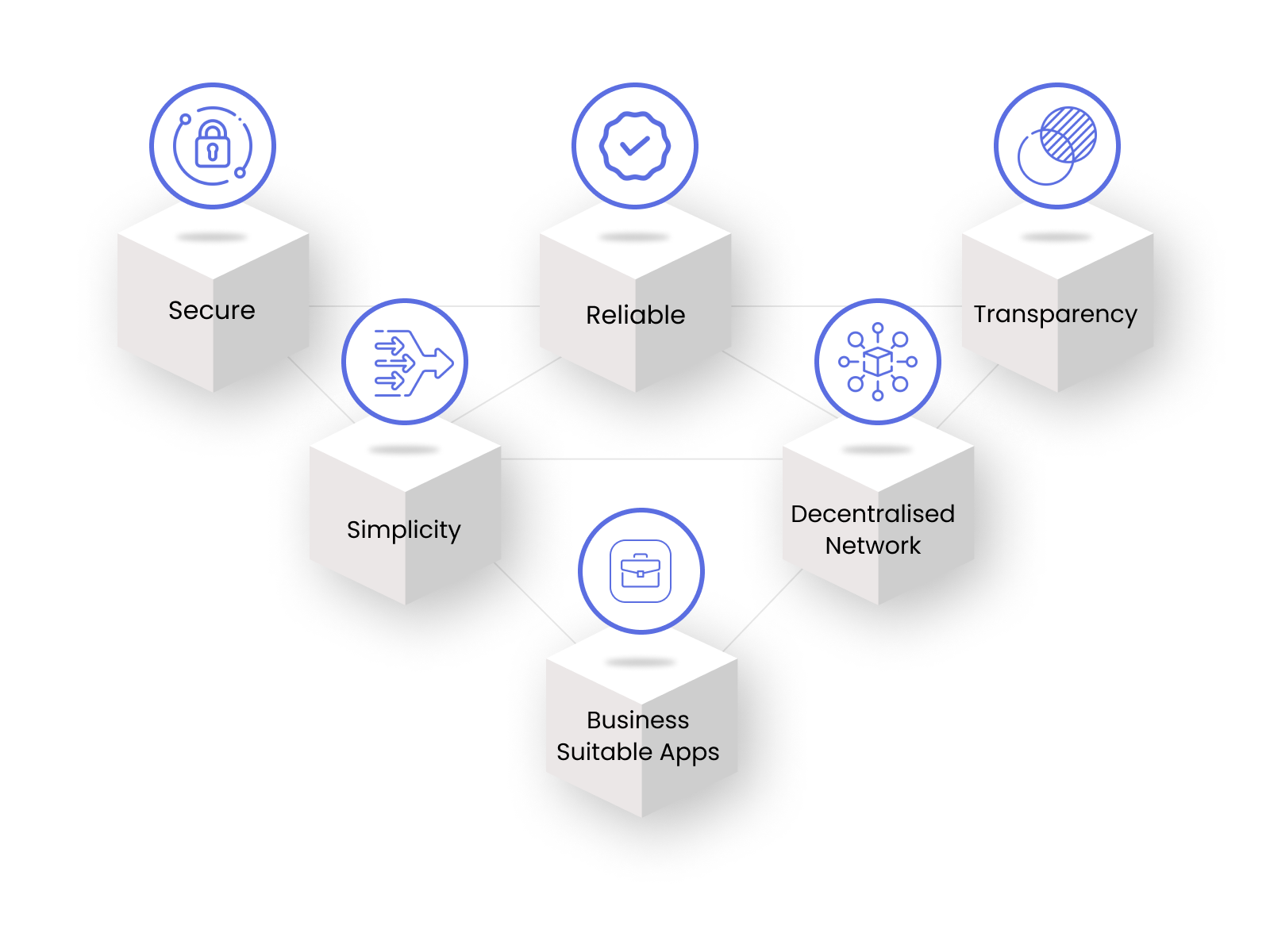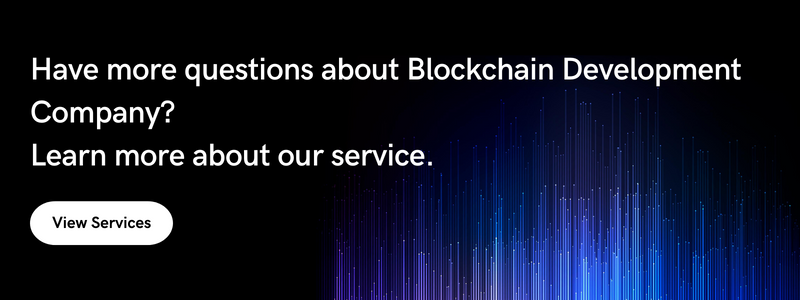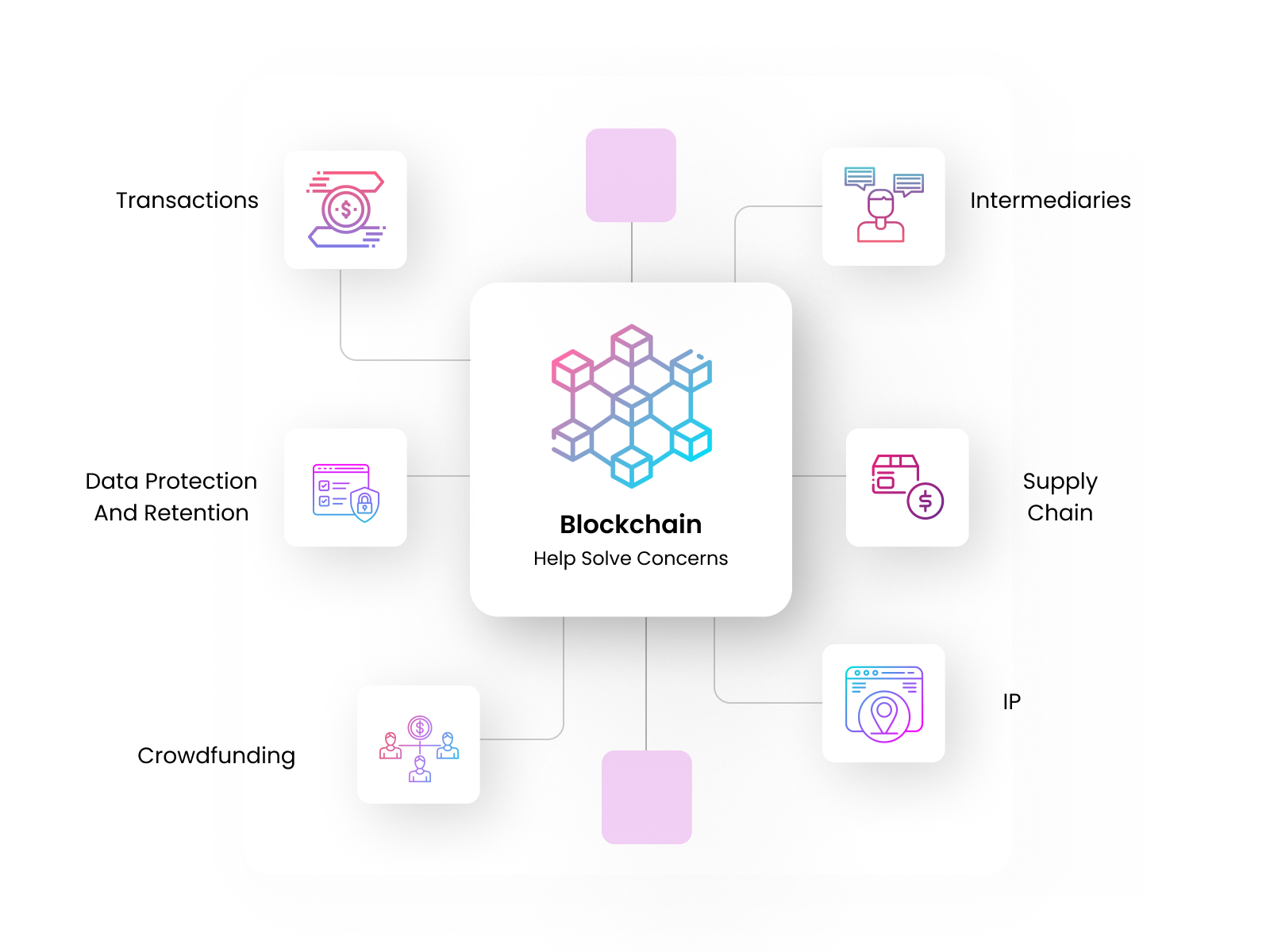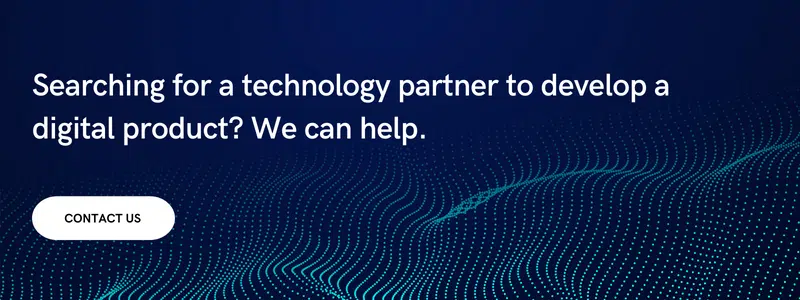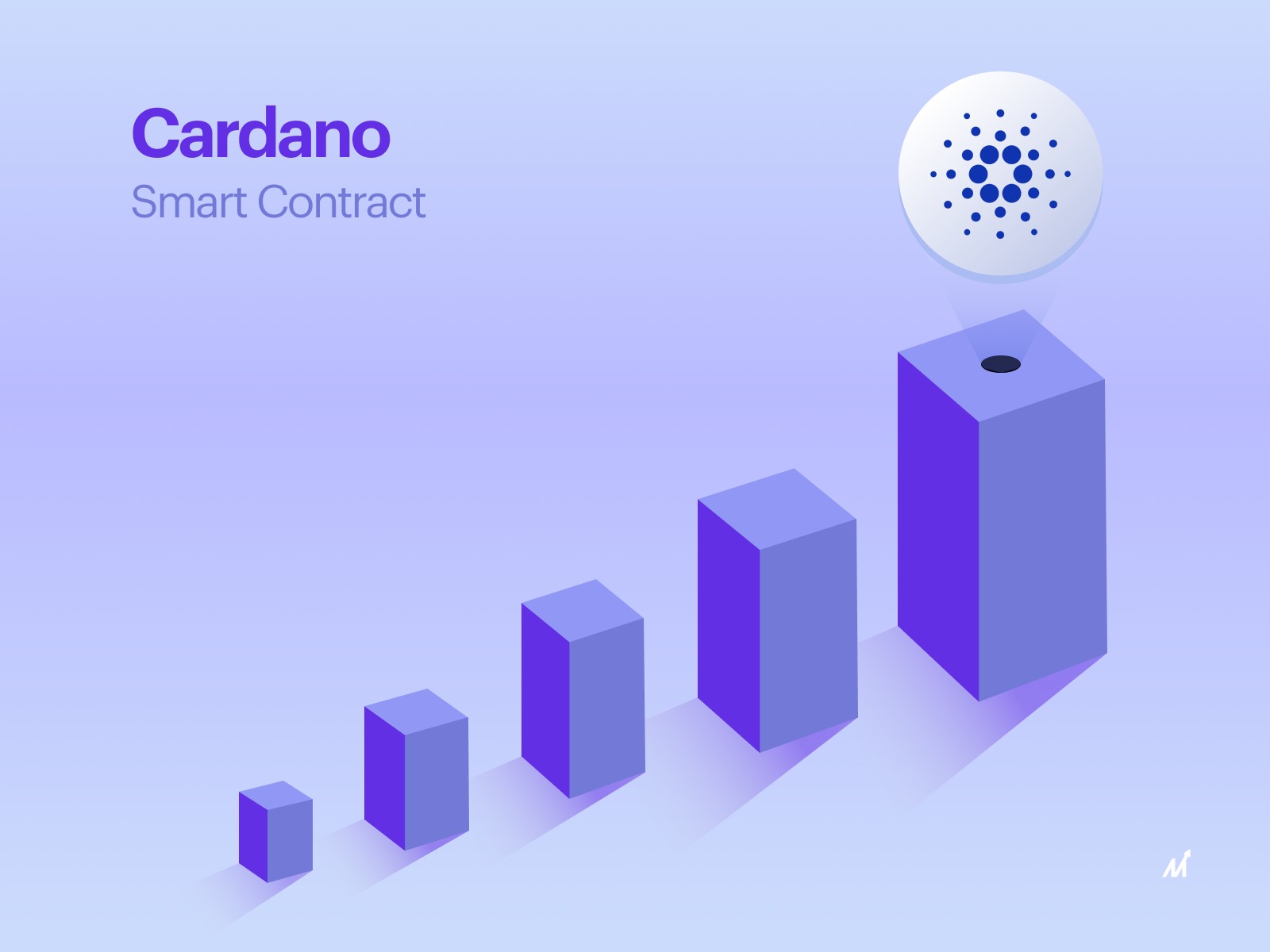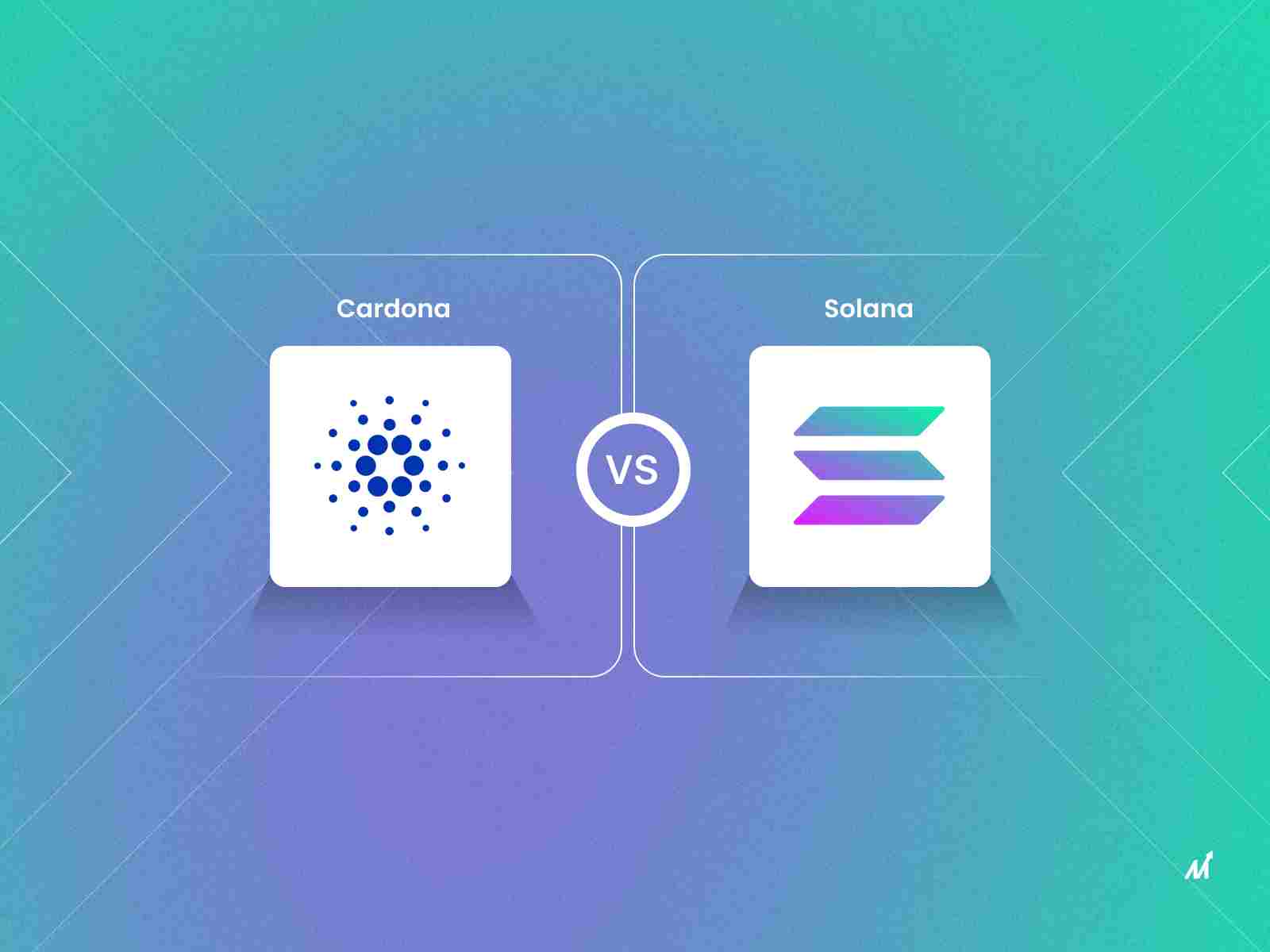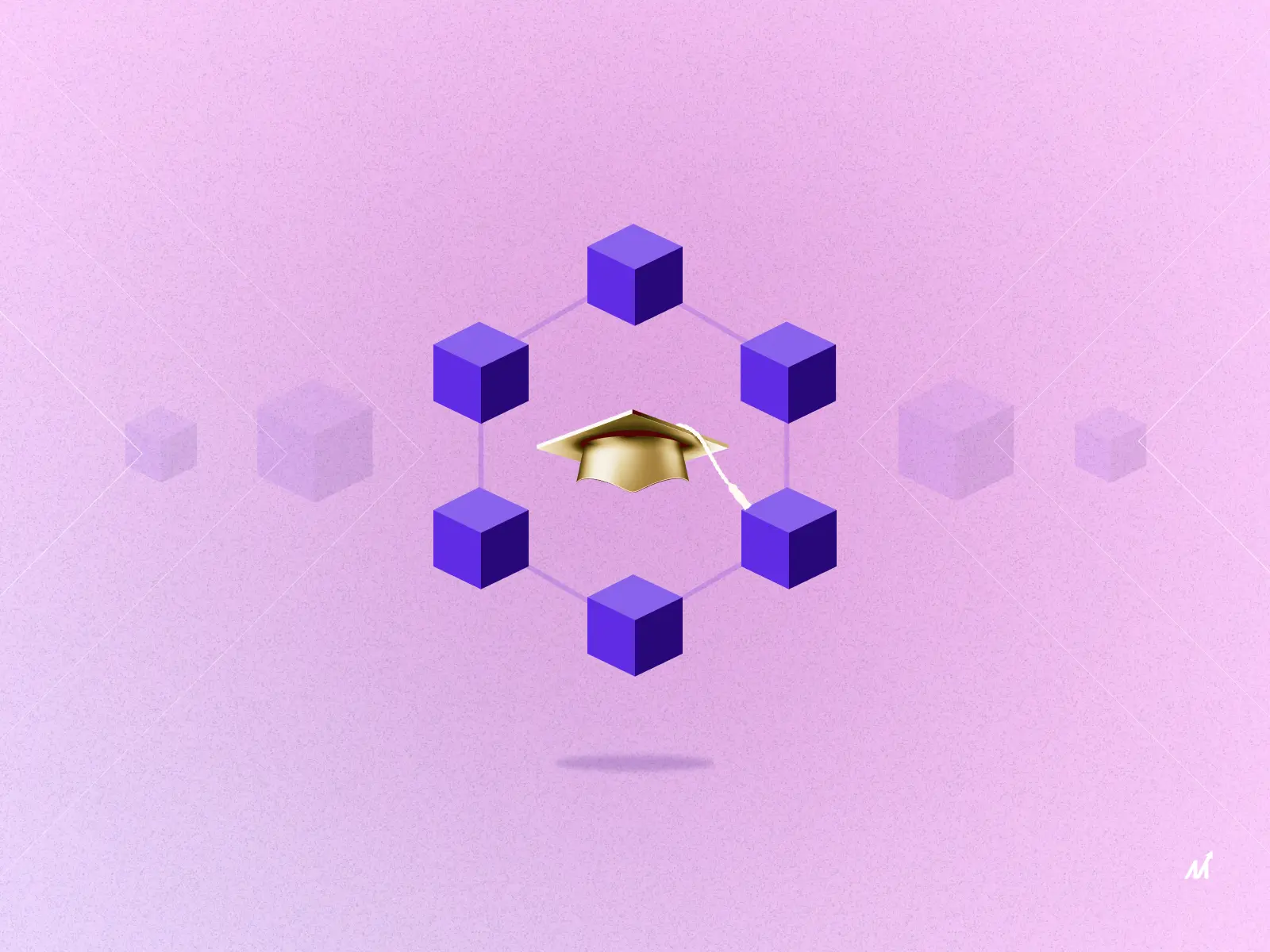Blockchain App Development: Introduction
Blockchain app development has grown significantly in recent years. Spending on blockchain solutions worldwide is expected to increase from 4.5 billion US dollars in 2017 to 19 billion US dollars in 2024.
Popular terminology like “crypto,” “Bitcoin,” “Ethereum,” and others are providing the globe with a dependable substitute for centralized currency. Blockchain development is heavily influenced by its encryption technique. Blockchain is present throughout various businesses, with mobile applications being the top tier with the most innovative features. It may boost data privacy, as well as make the apps more secure. A cryptographic hash encodes and preserves each piece of data, creating an impenetrable encryption method. Additionally, the decentralized nature reduces the likelihood of third-party apps causing disruptions.
Countless android/iOS apps from diverse industries, including retail, banking, supply chain, etc., will use Blockchain shortly. Yet, there is no justification for limiting the sectors using the blockchain mobile app development process.
What Do The Stats Say About Blockchain App Development?
- In 2021, the worldwide blockchain technology market was estimated to be worth $5.85 billion, which is expected to expand to 1,235.71 billion U.S. dollars by 2030, reflecting an 82.8% compound annual growth rate.
- Through tokenization, which uses digital real estate tokens to represent actual assets, Blockchain has the potential to simplify the process of discovering as well as purchasing real estate. This makes the transfer between buyer and seller easier by eliminating the requirement for an intermediary.
- Blockchain-based contracts are becoming increasingly popular as government, healthcare, and real estate industries realize the benefits.
- Its characteristics can improve the transparency and traceability of commodities, data, and financial assets, as well as market access and transaction efficiency.
Gartner’s latest Trend Insight Report made the following prediction:
- Only 10% of firms will undergo any significant shift utilizing Blockchain by 2023.
- One creative blockchain-based enterprise will at least be valued at $10 billion by 2023.
- By 2026, the corporate value provided by Blockchain will be slightly over $360 billion, rising to more than $3.1 trillion.
How Blockchain App Development Is Enhancing The Development Segment?
Increasing momentum through mobile app development demonstrates blockchain as a safe and secure method. Because of its dependable solutions, Blockchain has been used by several well-known firms. For instance, Facebook, HTC, and other international businesses use Blockchain, and its acceptance will expand over the next few years.
- The elements that make Blockchain the best option in the field make it groundbreaking for businesses producing mobile apps.
- It is the most secure technology against cyber-attacks for full-stack development ccompaniesIt’s is, therefore, more likely to change into a new paradigm during the next few years, providing consumers access to previously inaccessible application alternatives treatments’ that may be observed everywhere.
Let’s examine some key advantages of using Blockchain technology to build mobile applications.
1. Blockchain Provides Security
Each of the interconnecting blocks that make up a blockchain contains transaction metadata. Since the data is hashed using cryptography, it is challenging to crack the block. Mobile Blockchain apps are more secure because of sophisticated cryptography and complex encryption.
2. Blockchain Offers Reliability
Due to the secure blockchain technology, businesses profit from the smooth mobile app development process. Duplicate copies of data in multiple locations ensure high data dependability, and Blockchain operates in a similar manner. The decentralized architecture decreases the risk of a system crash. The result of the block data’s extensive processing makes it recoverable and increases the reliability of the mobile app development process.
3. Blockchain Provides Transparency
Transactions on the Blockchain are fully transparent. The transactions in this chain are accessible to everyone. The likelihood of fraud and information fabrication is decreased since every node can access the transaction. A complete Blockchain-enabled ecosystem has been developed due to mobile app development companies.
4. Blockchain Provides Simplicity
Blockchain development solutions are easy to deploy with mobile applications for a broader range of integration. Simplicity enables low-cost mobile app development while still producing many features.
5. Blockchain Offers Business-Suitable Apps
The popularity of Blockchain technology has governments keen to work with it to store data. Once data has been altered, it is non-editable once again. Blockchain development services enable the establishment of enterprise apps with all necessary features for enhanced supply chain management and security infrastructure.
6. Blockchain Provides A Decentralized Network
A sizable network of processing devices enables a distributed network called blockchain. With improved data storage and communication networks, mobile apps are clients, while distributed nodes are servers for the clients.
Some Concerns & How Blockchain Can Solve Them
1. Crowdfunding with Blockchain App Development
Crowdfunding driven by blockchain technology has the potential to be more democratic because it is anonymous, secure, and transnational. Blockchain can hasten the creation of a global platform for crowdsourcing that anybody can utilize. It will make global crowdfunding possible.
2. Data Protection & Retention in Blockchain App Development
Data storage on Blockchain will significantly increase data security. The remainder of the nod network will have access to the data from the Blockchain. Blockchain can solve the data storage issue because of its decentralized and distributed nature.
3. Improving Transactions through Blockchain App Development
Blockchain payments can potentially improve payment operations’ efficiency for many businesses. Blockchain can provide many businesses with a cost-effective substitute for quick, secure transactions. Additionally, the design of the Blockchain prevents manipulation by enabling a real-time audit of all transactions.
4. Reducing Intermediaries with Blockchain App Development
Blockchain frequently enables consumers to avoid intermediaries. By using Blockchain, businesses and individuals can reduce fraud and guarantee the security of all transactions, even when intermediaries are necessary.
5. Enhancing Supply Chain Management with Blockchain App Development
Blockchain technology is among the most promising for supply-chain management and can track each product’s supply-chain step, improving security and transparency. Furthermore, Blockchain has the power to modify and replace current trade procedures.
6. Protecting Intellectual Property with Blockchain App Development
Blockchain can protect any intellectual property, including ideas, trade secrets, and songs you’ve written. Additionally, it enables one to create a digital audit trail of their creation process. To prove their ownership of an asset, one can quickly get Blockchain certifications.
Blockchain App Development: Implications Across Industries
Blockchain uses extend well beyond cryptocurrencies such as bitcoin. With its capacity to increase openness and fairness while also saving organizations time and money, the technology is influencing many areas, from contract enforcement to making the government run more efficiently.
- Transfer of funds
- Intelligent Contracts
- IoT (Internet of Things)
- Personal identity protection
- Healthcare
- NFTs (Non-fungible tokens)
- Government
- Media
Blockchain App Development: Markovate’s Expertise & Experience
Markovate develops unique blockchain solutions with Hyperledger, EVM, Solidity, Cosmos, and Substrate. Since we have considerable expertise in designing business logic and maintaining blockchain nodes, we understand how to establish a decentralized platform for NFTs, bridges, DEX, metaverse, tokens, and dApps.
Hire professional Markovate blockchain developers who have worked with blockchain implementation. Moreover, you will receive the necessary information and skill set from our professionals. Call us right away!
Further Read: How Blockchain Is Revolutionizing Mobile App Security?
Blockchain App Development: Commonly Asked Questions
1. How Would Blockchain Apps Prevent Fraud?
Blockchain features that prevent fraud:
Distributed Network
A peer-to-peer network continuously shares and updates a distributed digital ledger called a blockchain. It contains transaction data. There is no single point of failure since there is no central administration or version. Instead, the network disperses administration and authorization, eliminating potential hubs for fraud schemes.
Unalterable Blocks
Blockchain transactions are unchangeable since they can’t be removed or modified while recorded. Network users must find agreement on the validity of a transaction before a “block” of transactions can be included on the Blockchain. Blockchain can therefore reveal an item’s origin, destination, and previous owners.
Permission Restricted
Blockchain app architecture limits who can join and in what capacity. Permissioned networks may be very efficient in avoiding fraud. Members of a permissioned network must first receive an invitation and be verified before they can contribute.
2. Can Blockchain Apps End Piracy?
- Digital piracy is predicted to cost the American economy at least $29.2 billion annually in lost domestic income and between $47.5 billion and $115.3 billion annually in decreased GDP.
- One tactic to stop digital piracy might be using blockchain technology. Businesses use blockchain technology to combat piracy through digital watermarking and content surveillance. Only a ledger can monitor and identify precisely who owns something.
- Blockchain technology cannot end piracy on its own. It can give I.P. owners methods to monitor and safeguard their products effectively, but it cannot eradicate piracy.

